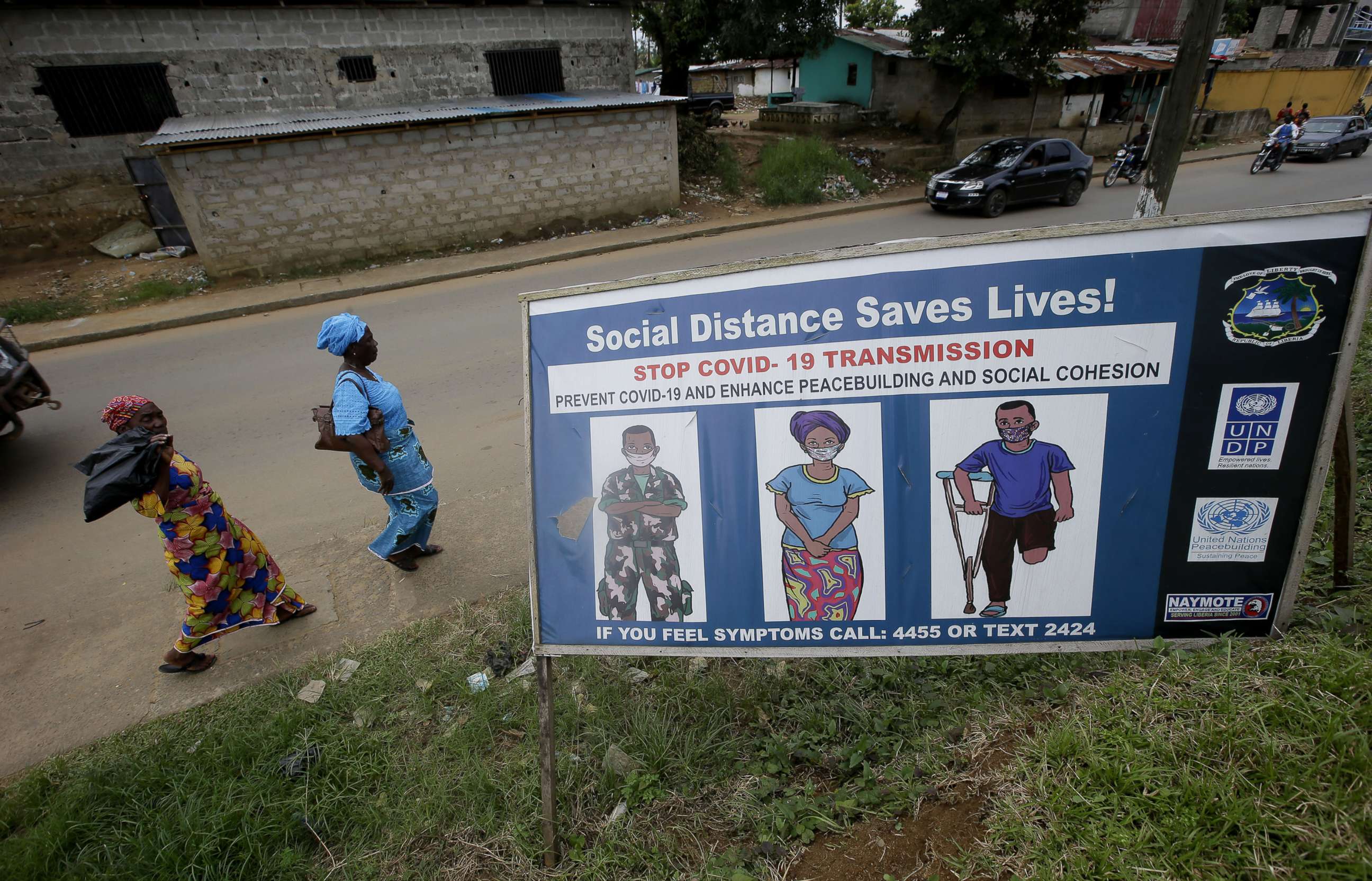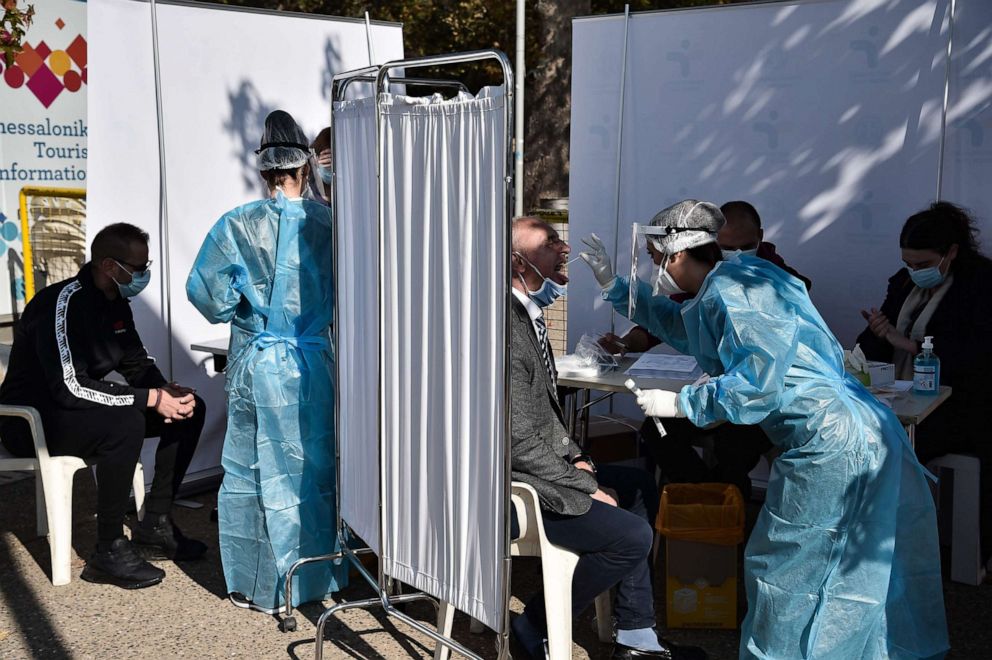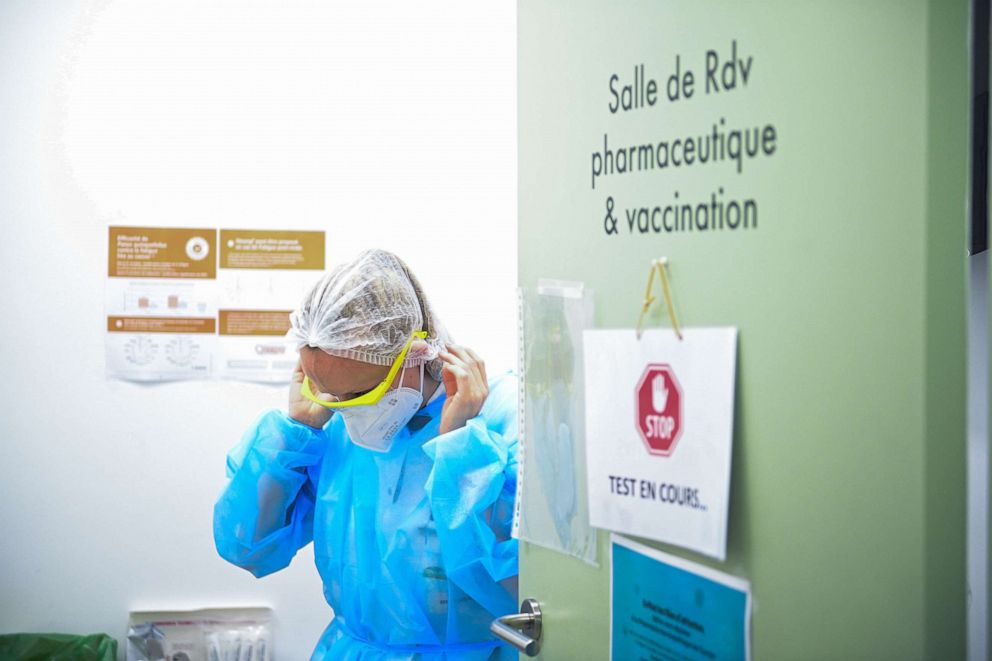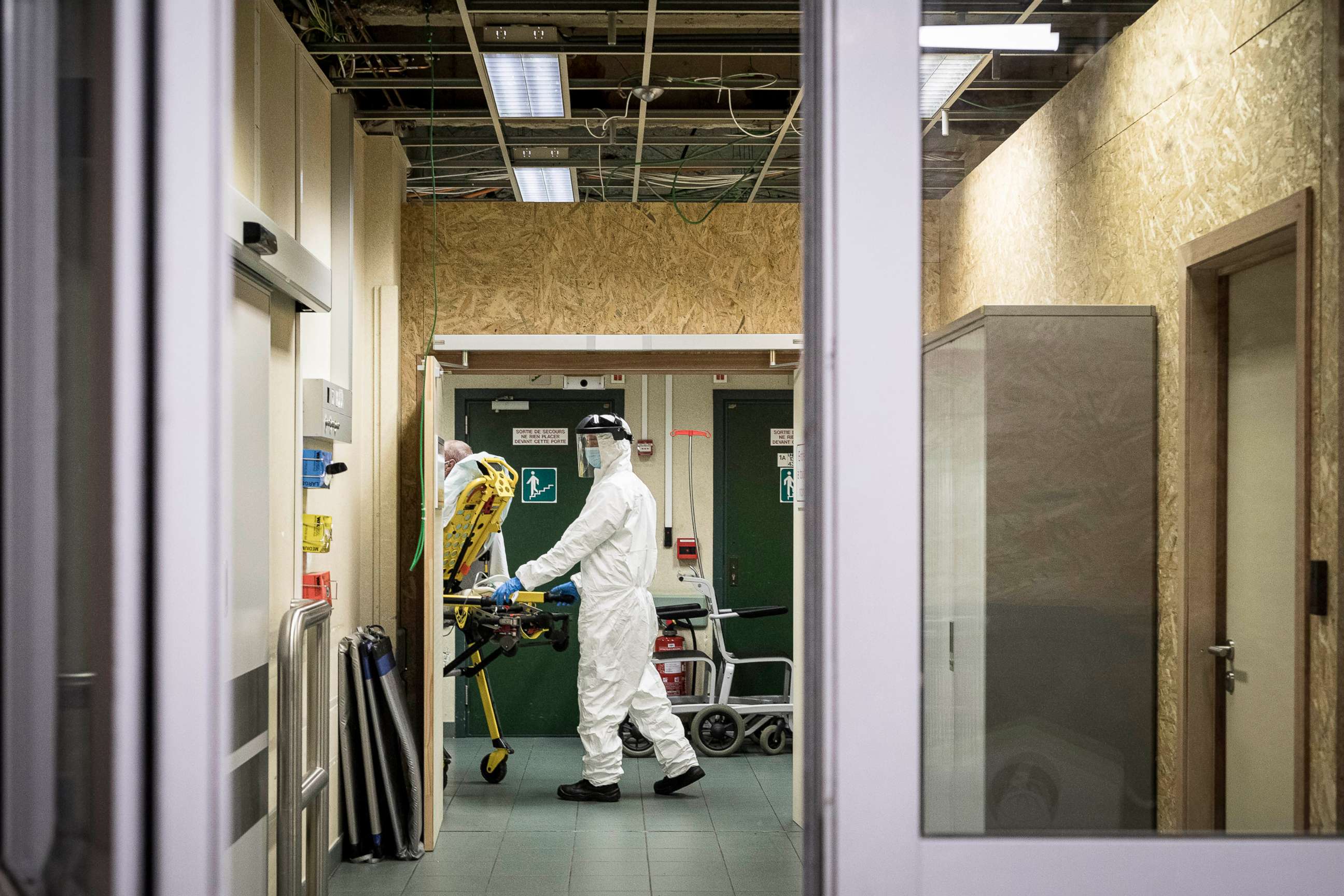Reporter's Notebook: How are other countries enduring the pandemic?
An ABC News correspondent shares insight and experiences from 11 nations.
I thought I was hallucinating.
I was sitting outside in the garden of my hotel in Liberia when a man came out to sit at a table across from me.
"Hi, mate," he said, in a familiar British voice. It was strange to see another Brit -- let alone a foreigner -- in this small African nation, which, like so many other places during COVID-19, was supposed to be cut off from the rest of the world.
"What you doing here then, mate?" he asked with a broad Newcastle accent. "Journalist, are you?"

I told him I was there to film a National Geographic special on viruses and the next pandemic. "How about you?"
"Ah, well, I work in the mines," he said. "But I've been stuck here since February. I had gone to see my girlfriend in Thailand, and when I came back they put me straight into quarantine because they thought I'd been in China."
My eyes must have widened because he could tell I was trying to imagine the idea being quarantined in Liberia.
"Yeah," he said, laughing. "It wasn't great."
It was astonishing to me that one of the poorest countries in the world had managed to set up a system of this kind, while more developed nations are still struggling to establish widespread testing procedures.
Kevin, who didn't share his last name, said he'd spent two weeks in what was essentially a Liberian military prison. He had a small cell, with a mattress on the floor, and a sponge and bowl in the corner. He said he had to share a toilet and shower with 24 other people.
"If I didn't have coronavirus when I went in," he joked, "I definitely had it when I got out."

But Liberia's attitude toward the novel coronavirus is certainly no joke. It's one of a series of countries I've visited during the pandemic, and given its experience battling Ebola and knowledge of public health risks, its coronavirus strategy was one of the strictest. You are only permitted to fly there with proof of a negative test taken within 72 hours. Once off the plane in Monrovia, passengers are shuttled toward large sinks to wash their hands and made to fill out all their contact details by airport staff who are wearing full-body protective gear. But what's more, travelers can only leave the country once they've had another test -- so you can understand my panic upon hearing Kevin's story.
The rather uncomfortable nose-and-throat swab is taken at an empty football stadium in the capital, where, again, a surprisingly efficient process gives you a result within 24 hours. It was astonishing to me that one of the poorest countries in the world had managed to set up a system of this kind, while more developed nations are still struggling to establish widespread testing procedures. There is still much to learn about the dangers of coronavirus -- who gets sick and why -- but with around 1,400 confirmed cases and just 82 deaths, Liberia is certainly doing something right.
Greece also saw perhaps unexpected success early on, although like the rest of Europe is now experiencing a second wave. But testing at the border seems to have kept the country clear of the major catastrophes that hit its neighbors. We arrived in Athens in mid-May -- again, with special permission -- to find testing booths set up in the arrivals hall. Greece had closed its borders to everyone except Greek residents at a relatively early stage of the pandemic and so was able to keep arrival numbers small enough to not only give everyone a test but also put them up in specially designated hotels for 24 hours until receiving their results. An additional two weeks of mandatory quarantine at home was enforced -- and by and large respected by a population keen to protect its elderly citizens. Any traveler with a positive result remained in isolation at the hotel, where they had to stay until testing negative. Our 24 hours waiting for results in Athens was a little stressful, but a hotel in Greece might be a better way to spend two weeks than a prison in Liberia.

When I spoke with the culture minister and her team about what restrictions Britain had introduced on travel, they were more than a little surprised to find out that by the same stage nothing was in place in the U.K. Indeed, when I returned from Brazil a few weeks later -- one of the worst-affected countries on Earth, and at the time at the peak of its pandemic -- anyone with a European passport was able to use the automatic gates at the airport, with not a single question asked about where they'd been.
Turkey's procedures seemed a little less clear. Arriving in the country was not dependent on any kind of test, but there was a testing system at the airport for travelers requiring one. Before checking in, we were directed to a series of desks at the far end of the departures terminal that required registration and payment, before a man in full PPE greeted us in what looked like a futuristic port-a-potty to take a rather intrusive nose-and-mouth swab. Of all my virus tests, this was the most uncomfortable. Results were emailed -- a smart-looking PDF -- directly to each of the team within about 12 hours.
In October, I travelled to Italy, France and Belgium and found that testing procedures seemed more widely available. European citizens are used to far cheaper health care than are Americans, so paying even a comparatively small fee for a test in a Paris suburb did seem odd to me. But at €130 (about $150) it's a far more reasonable price now than earlier in the pandemic.
Of the seven tests I've done, three were in the U.K., after returning from abroad. They weren't required by the authorities, or even available under Britain's National Health Service, but private tests carried out for our own piece of mind. One of these was an at-home test, which even at a private clinic took five days to process, with the other two performed on the premises.

Even after all these tests, including an antibody test that showed I've never had the virus, I'm still not totally convinced I've managed to go COVID-free free for so long. I was in Italy four times at the beginning of the crisis -- well before we knew coronavirus had likely already spread across Europe. I've been to 11 countries since March, each time connecting at least once through another country. On each trip we are very careful -- masks on at most times, with hand-washing and social distancing now just a part of our work. But still, in the back of my mind, I think about false negatives and all the other issues we still know so little about when it comes to this virus.
Of the countries I've visited, it seems to me that early testing kept the virus out. In places where that wasn't happening, it's been an uphill struggle. The second part of the equation -- tracing -- seems to be the missing piece of the puzzle now. Countries know who has the virus, but the technology to track them and make sure they stay home seems to have alluded them -- at least so far.



